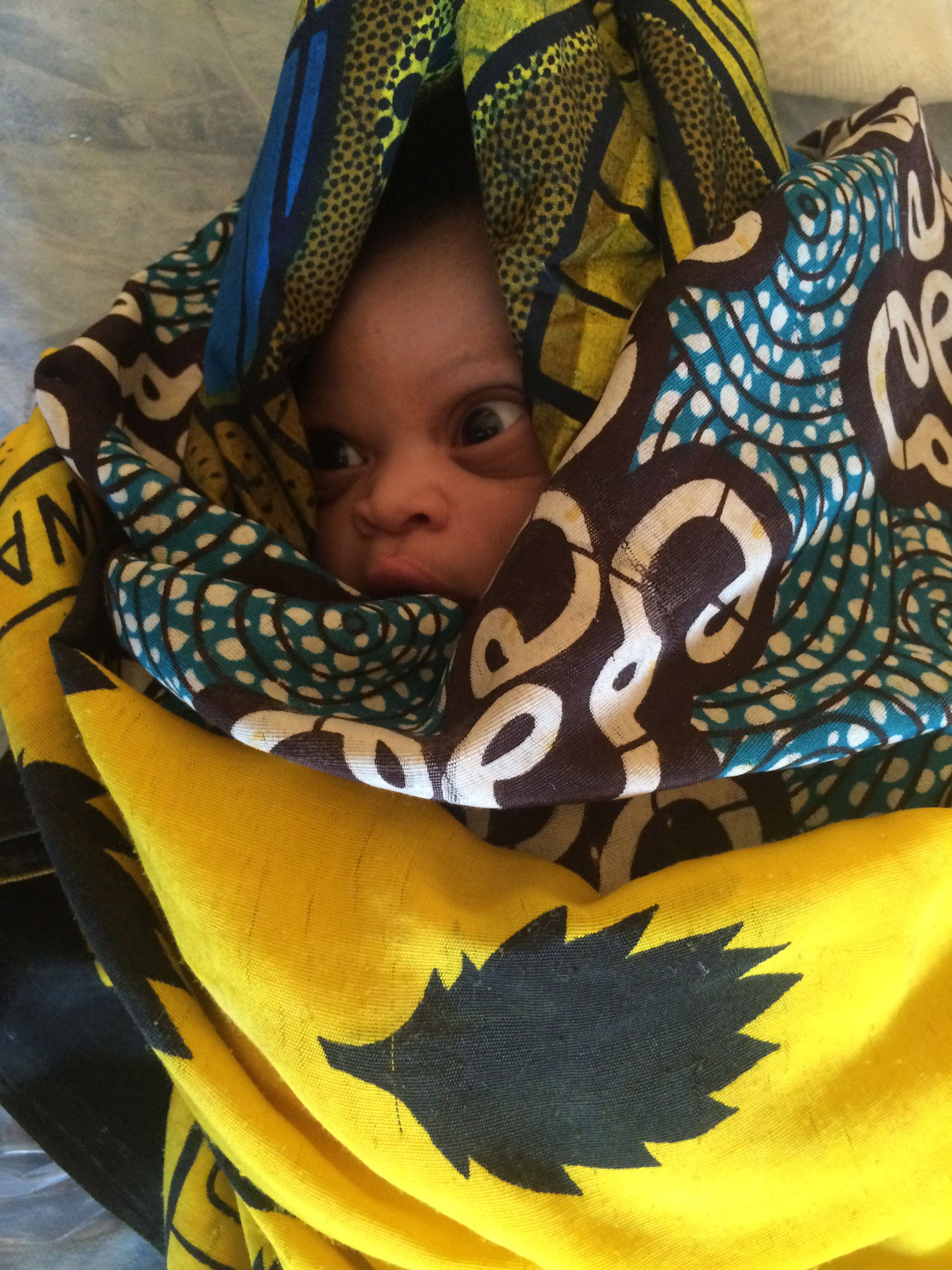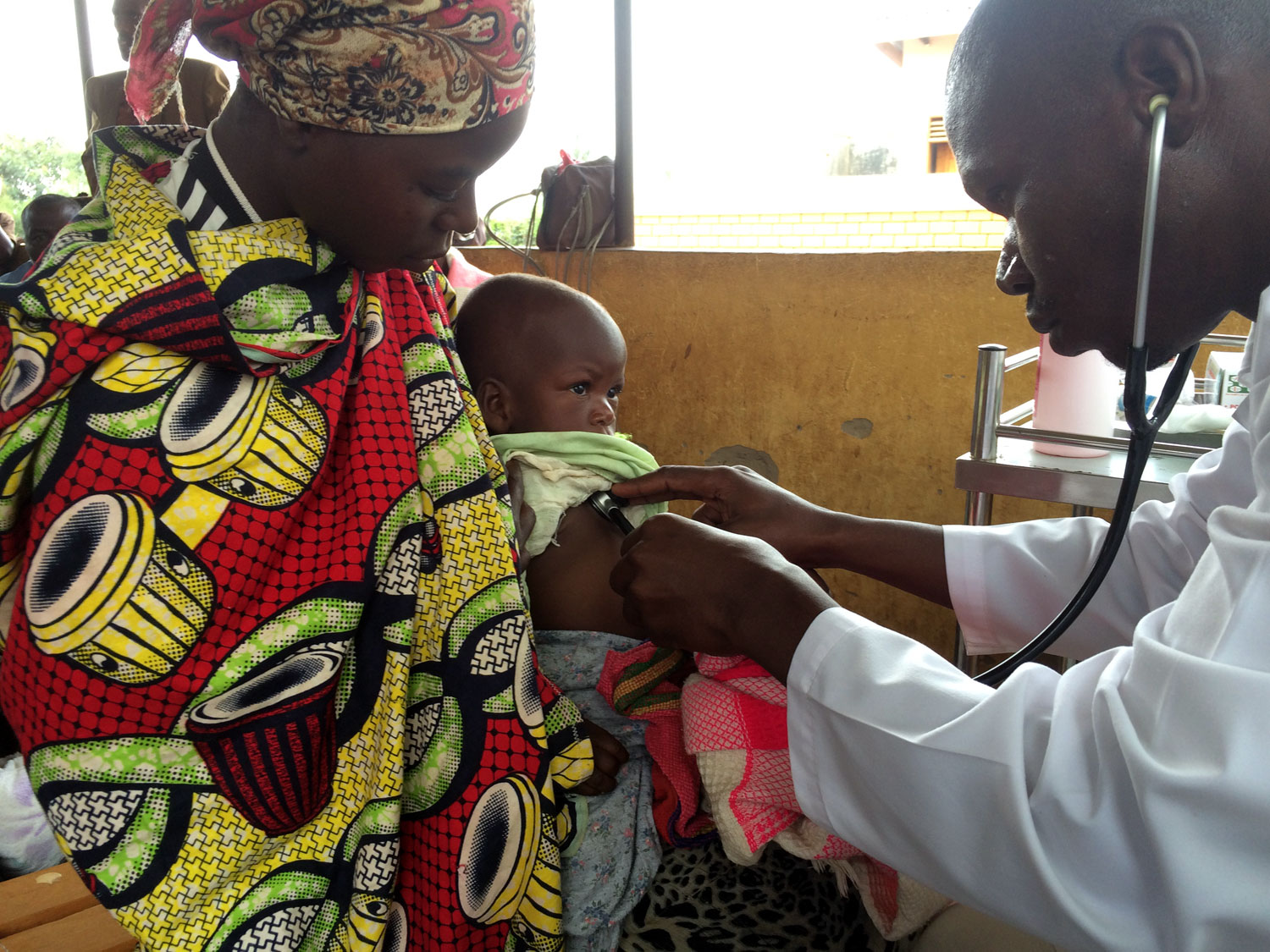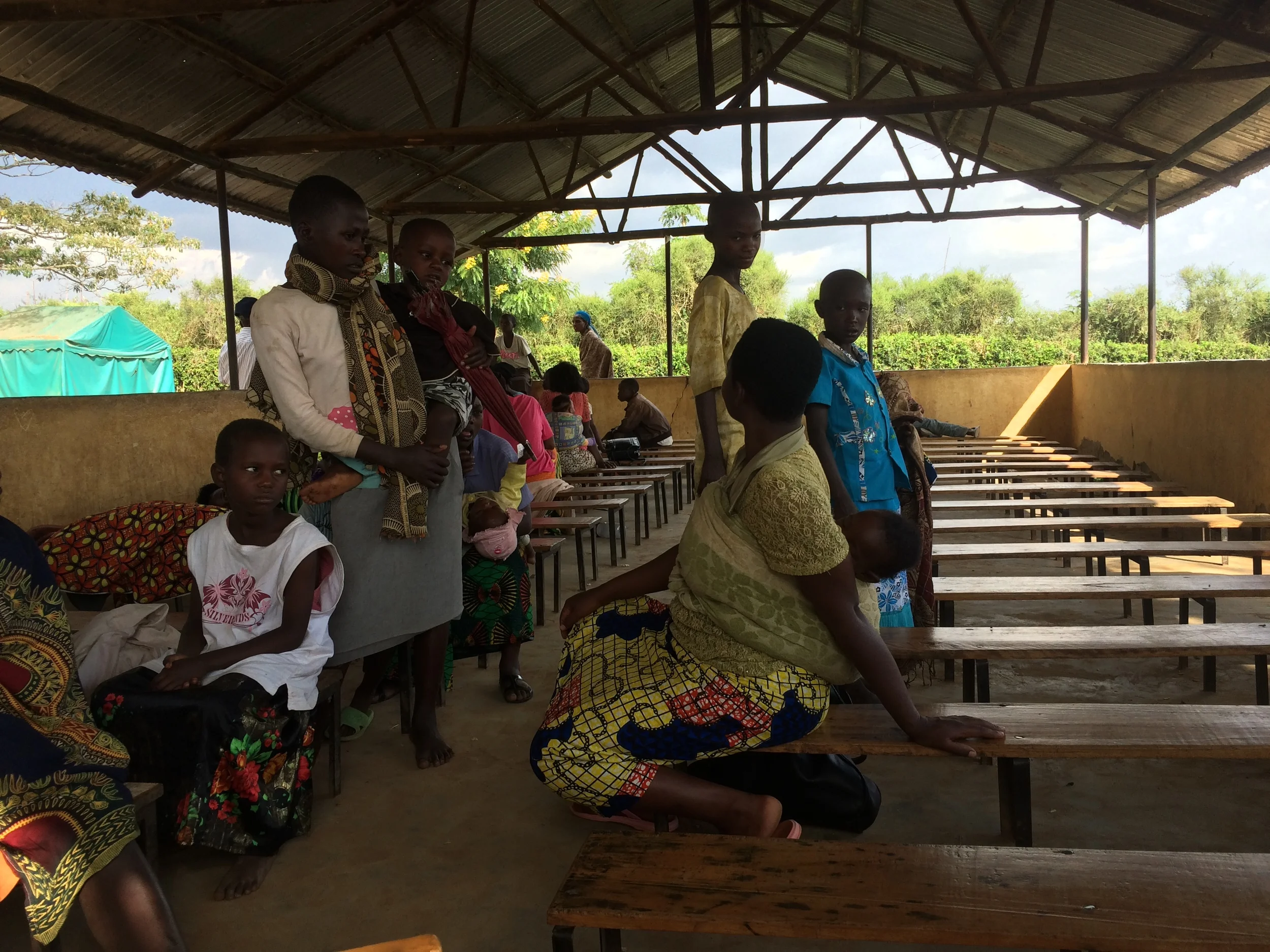Living Like Jesus in the Dirt
Bartimaeus Boldness
Wednesday= EPI!
The definite highlight of the day was seeing a kiddo come into the clinic dressed as Santa Claus (his mother completely unaware) and seeing another kiddo named 'Beyonce' (not the typical Congolese-refugee name) ;)
Blood Pressures & Babies
Spending so much time with pregnant woman here in the settlement and being so close to life and death on a daily bases has caused me to do a great deal of thinking, specifically about the differences between delivery in a country such as Uganda and the U.S; the differences not only in the delivery itself but also in the preparation leading up to the birth. Back home, we have the power and the knowledge to be in charge of our bodies (in most cases) from pre-conception to post-delivery. We can plan whether or not to become pregnant and after our urine dipsticks display a '+', we have nine months to fully prepare for the coming child. We order parenting 'how to' books, attend parenting classes and workshops, practice prenatal Yoga, consult with our friends who have gone before us, outfit the baby's room and line up friends who can deliver meals. Once the delivery gets closer we go to work in our search for the perfect midwife and if we are lucky, a doula as well. We visit birthing centers and hospitals and start choosing how and where we will bring new life into the world. Through every step of the process we are receiving routine antenatal care, which includes ultrasounds to tell us whether all is well inside the womb. In Africa, and many other areas of the world, women are never consulted about the decision of whether to get pregnant. Theirs is a life of subservience and reproductive surrender. There are no books for them to read or classes to attend on how to be a good parent, there is no one telling them what they should or shouldn't eat as the baby begins to grow inside their wombs. As their gestation period winds to an end, there are no ultrasounds, no fancy birthing suites and no pain medications. They do what their ancestors have been doing for millenia before them. They squat on a dirt or concrete floor and bring new life into the world. Their bodies know what to do and for many, both baby and mom come out of the experience healthy. The problem however, is that for the majority of women, this is not their story. According to the WHO, almost 800 women die from pregnancy or childbirth-related complications around the world every day, with 99% of maternal deaths occurring in developing countries (primarily Africa and areas of Asia and the Middle East). http://www.who.int/mediacentre/factsheets/fs348/en/
My first paracentesis, for starters....
At six years of age he was unable to walk and appeared to be perhaps 3 years old, his head being completely disproportionate to the rest of his body which had stopped growing early into his development.
The Challenges of a Rural Outpatient Clinic
Malaria!
Women Matter- Reflections from NW Uganda
“It is a woman’s fault if she becomes pregnant, not the man’s. Only she should be punished.”
What is Nakivale?
What is Bartimaeus Boldness?
The story of Blind Bartimaeus occurs in the Gospel of Mark and concerns the healing of a blind beggar called Bartimaeus. We pass by him every day. He sits under the 1-5 overpass in Seattle with his head down, his tent behind him and his cup of change outstretched before him. We pass him by and ignore him and think to ourselves, look how dirty our city has become, so much garbage everywhere, the unhoused living on every street corner begging for change. Something has to be done.
What would happen if Jesus were to show up in the flesh in Seattle? Can you picture him walking under the 1-5 overpass, on his way out of the city, surrounded by a throng of people, along sidewalks lined by our unhoused neighbors? Now, rewind back to Bartimaeus. Perhaps this 'ruffian' heard the crowds shouting or maybe he simply caught wind of the name, 'Jesus of Nazareth'. We do not know. We do know that his finely trained hearing alerted him to the fact that Jesus of Nazareth was passing by and he was not about to let this once in a lifetime opportunity go to waste. This was the last time that Jesus would journey into Jerusalem before being crucified, and thus the last opportunity to receive his healing.
Bartimaeus called out to him, shouting above the roar and noise of the crowds. He addressed him as 'Son of David', affirming his belief that Jesus was the Messiah (see 2 Samuel 7:14–16). He called out for mercy and for healing. Perhaps Jericho was not so different from Seattle, however surely this man would have been stoned for calling out the name of Jesus so fervently in my city. The crowds shouted back at him, yelling at him to be silenced, but he ignored their scornful remarks and called out even louder.
Jesus took notice of his cries and called him over. Immediately, Bartimaeus threw off his cloak and ran over to Jesus. Can you even picture this? A man throwing off one of his only possessions and probably one of the only things he had to keep himself warm and running toward the man he believed was worth giving up everything for. How often do we even come close to living with such faith? with such abandon? When he came to Jesus, Jesus asked him, "What do you want me to do for you?" Bartimaeus could have asked for anything. Instead, his request was simple. "I want to see". I can't help but believe that Bartimaues was asking for much more than just his physical sight. I think he wanted to see the world with fresh eyes, to fully see himself and to know that he was valued and not forgotten in the eyes of the creator, even though he was seen as nothing in the eyes of the world; passed over every day as people made their way in and out of Jericho. Bartimaeus came to Jesus with his desire, trusting that Jesus was both willing and able to fulfil it. When we come to God with our prayers and desires, how often do we really believe that Jesus is both willing and able to grant our requests, our pleas, the desires of our hearts?
Go!", Jesus said, "your faith has healed you". We are told that he immediately received his sight. Did he return to the roadside to continue begging? Did he return to his group of friends or his way of life? No. His response was immediate. He followed Jesus, and I don't mean that he figuratively followed Jesus, no he actually began to walk alongside him, following him along the road as it led out of Jericho.
This story is profound because it gives us a window into God's nature and sheds light on the type of faith and prayer that are pleasing to God. Bartimaeus took a great risk. He did not care what others thought about him. He was not held back by pride. Bartimaeus's cry of faith stemmed from his belief that this 'Jesus' was not like other religious leaders. this 'Jesus' cared for people like him, people cast off from society, the poor and the needy and the beggar. Whereas other religious leaders believed that an individual's misfortune, poverty or physical ailments were a result of God's judgement, Bartimaeus believed that this God was FOR him; a God who cares for the poor and brokenhearted (Psalm 34:6, 18).
The story of Bartimaeus is a story that calls us to throw off our 'security', just as Bartimaeus threw off his cloak, his one item of comfort and security. It calls us to 'live in the dirt', to take risks, to not care what those around us may think. It is a story that radically challenges common perceptions concerning success, identity, status and life priorities. More importantly, it is a story that calls us to great faith and to great action.
Go now and play in the dirt. Live with Bartimaeus Boldness.
Sed diam nonummy euismod tincidunt ut laoreet dolore magna aliquam erat volutpat.






